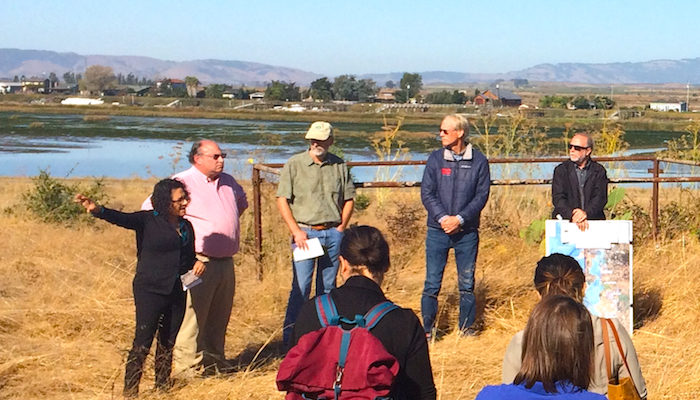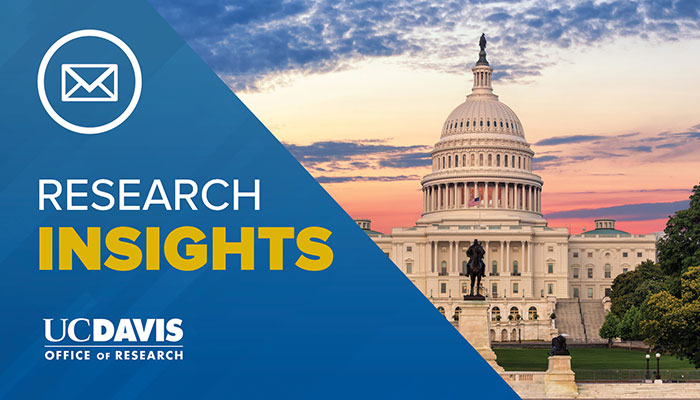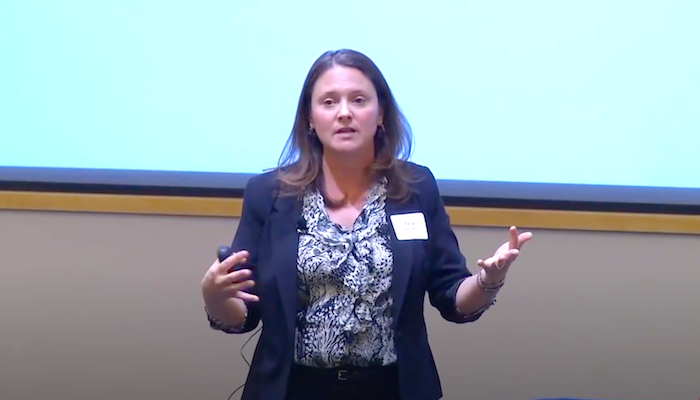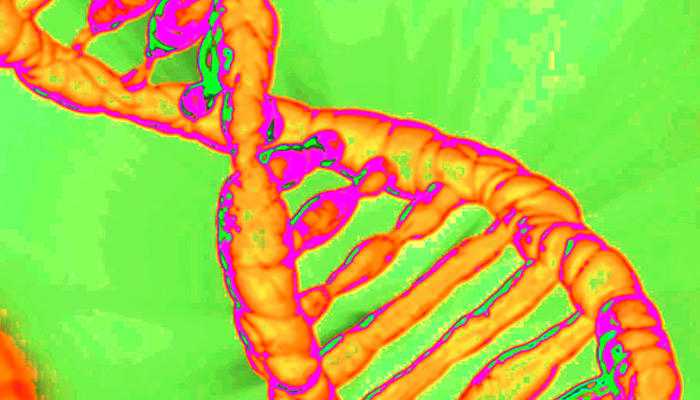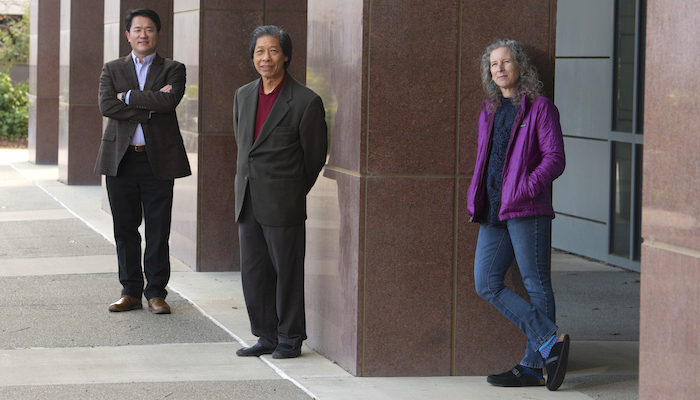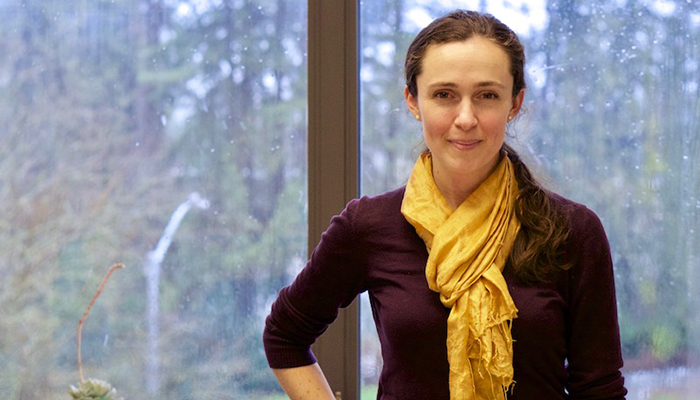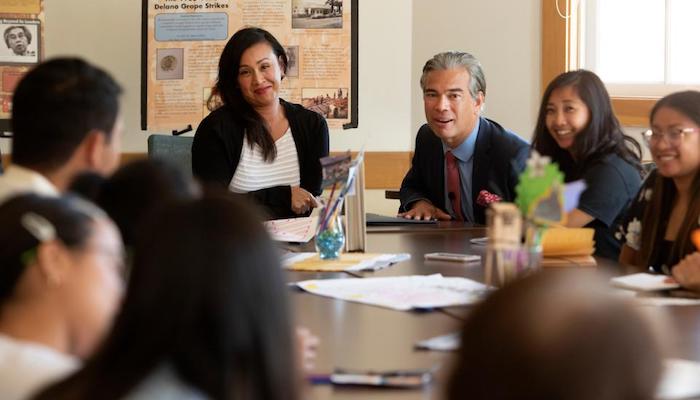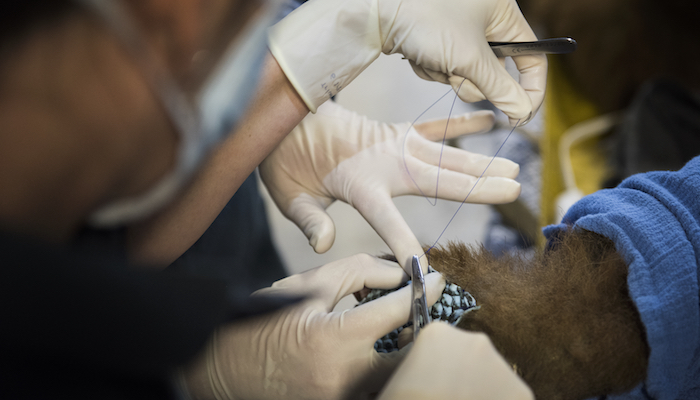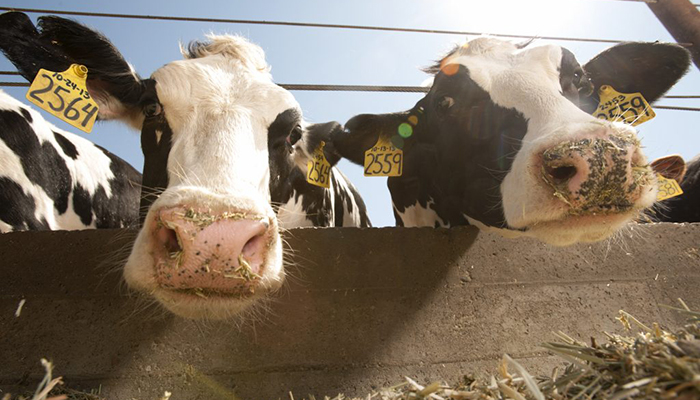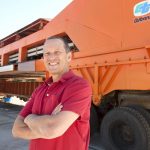Mitigating Climate Change with Mud? UC Davis Team Chosen as Part of Resilient by Design’s Bay Area Challenge
By Lisa Howard
UC Davis faculty are part of a multidisciplinary design team chosen to develop solutions to strengthen the San Francisco Bay Area’s resilience to the impact of climate change, such as sea-level rise, severe storms and flooding.
The contest, Resilient By Design’s Bay Area Challenge, attracted 51 international teams. The ten winners, which included the UC Davis team, Public Sediment, were announced last month. Additional winners include some high-powered urban designers, such as James Corner Field Operations, known for the High Line in New York City, and Bjarke Ingels Group, which, among other projects, is redesigning Google headquarters in Mountain View. Each team will receive $100,000 for research and $150,000 for the design. The ten teams will work with Bay Area residents and community leaders to come up with innovative designs that can help mitigate climate change.
Brett Milligan, an assistant professor of landscape architecture and sustainable environmental design at UC Davis, describes Public Sediment’s approach as “building with mud.” He explains that less sediment is flowing into the Bay Area because of a variety of human interventions, like dammed rivers and levee-confined tributaries, which has led to a subsidence of the Bay Area’s tidal wetlands, making them vulnerable to sea-level rise. The team is looking at using sediment dredged from the Bay and also exploring ways to increase the sediment that flows in from local tributaries.
“Even if you beneficially reuse sediment dredged from the Bay, such as the dredging at the Port of Oakland, that’s not enough to restore the marshes. And when you add on top of that sea-level rise, more needs to be done. That’s why there is a big push to get as many marshlands restored now as possible. We may have climate stability for another 30 to 40 years. If those wetlands are in place, they may be able to adapt,” said Milligan. He notes that predictions from the National Research Council have put sea-level rise along the California coast anywhere from 17 inches to as high as 66 inches by 2100.
Milligan is also a co-founder of the Dredge Research Collaborative, a nonprofit that looks at human sediment design practices. In 2016, the Dredge Research Collaborative curated DredgeFest California, a week-long event focused on the Bay-Delta “sedimentshed.” The results from that research formed the basis for Public Sediment’s strategy.
Led by SCAPE Landscape Architecture, the Public Sediment team includes Arcadis Design and Consultancy, Dredge Research Collaborative, TS Studio and Buoyant Ecologies Lab. Other UC Davis faculty on Public Sediment team include N. Claire Napawan, associate professor of landscape architecture and environmental design; Brett Snyder, associate professor of design; Beth Ferguson, assistant professor of design; and Jay Lund, professor of civil and environmental engineering and director of the Center for Watershed Sciences, an interdisciplinary research unit of the John Muir Institute of the Environment.
“Most environmental problems require people to work beyond their disciplinary pieces to provide workable solutions and insights,” said Lund. “This is a great opportunity to do that for the ‘problem’ of the Bay lacking enough sediment to accommodate sea level rise.”
This fall, all the teams are participating in weeklong workshops that explore different Bay Area locations and communities. Public Sediment is looking at tributaries around the Bay, and how they connect both to the community — many rivers are literally fenced off — as well as how they interface with the Bay.
In December, the ten team will present several different design proposals to the steering committee, which will then pick one project and one location for each team to move forward with. The challenge will conclude in May with the presentation of 10 new implementable design projects for the Bay Area.
Contact(s)
• Lisa Howard, UC Davis Office of Research, 530-752-8117, [email protected]
• Andy Fell, News and Media Relations, 530-752-4533, [email protected]
Media Resources
• Resilient By Design’s Bay Area Challenge
• Public Sediment
• UC Davis Center for Watershed Sciences
• Dredge Research Collaborative
• DredgeFest California Key Findings and Recommendations

